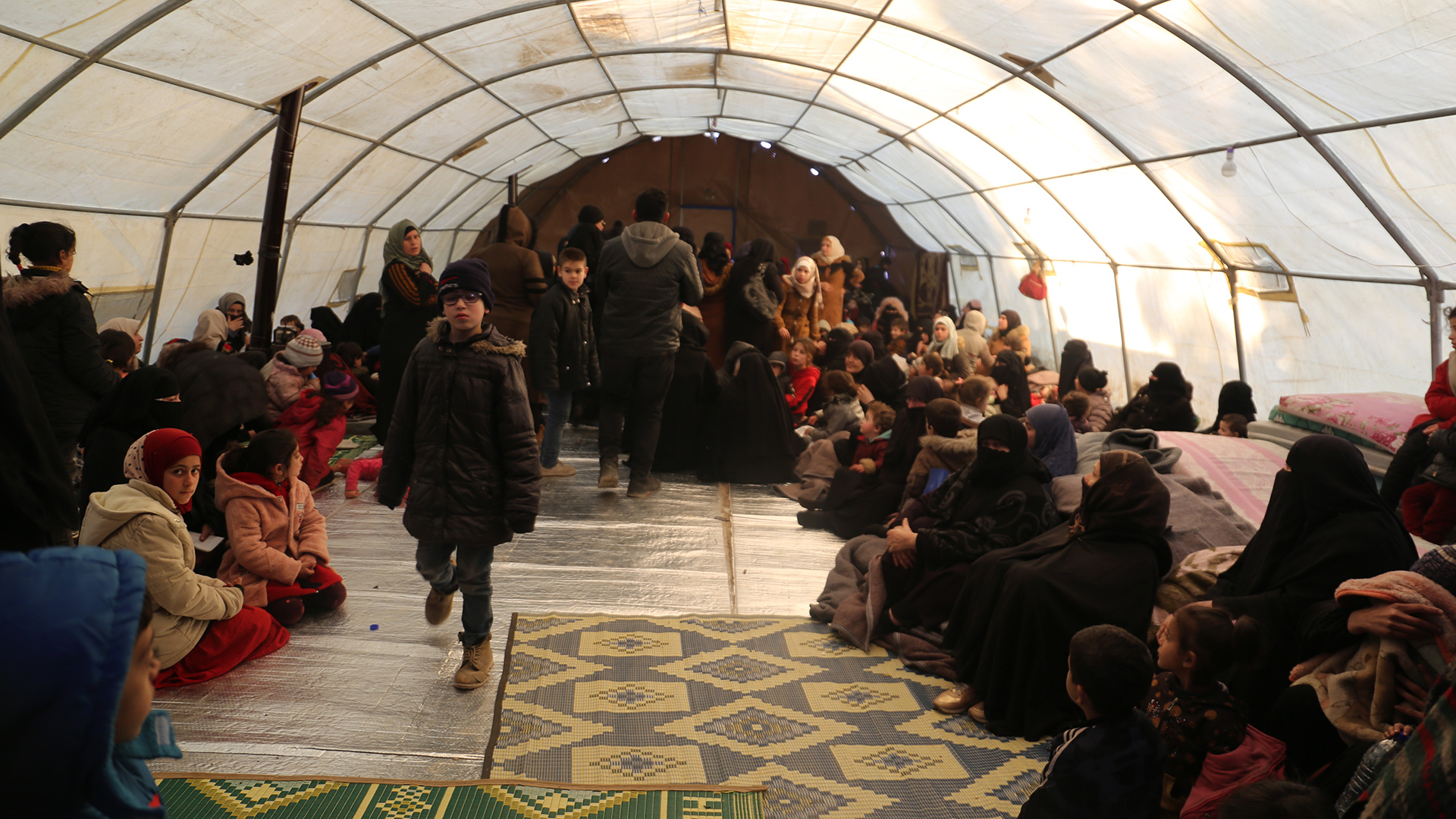Rural Aleppo -
Despite the severe cold, hundreds of families in northern Syria abandoned buildings and took refuge in tents and temporary shelters, fearing the aftershocks of the earthquake that struck the country last Monday, with a magnitude of 7.8 on the Richter scale.
The city of Aleppo - which was torn apart by the war in Syria into several parts, including one controlled by the Assad regime, another controlled by the opposition, and a third controlled by the Kurds - was the most destroyed Syrian city by the earthquake, and destroyed parts of Turkey as well.
The panic that gripped the population in the city of Aleppo prompted Ammar Setif, 42, to move his family from the city of Azaz (north of Aleppo) to the Ali bin Abi Talib camps in the Sarmada area (north of Idlib) on the Syrian border with Turkey, after its residential building was cracked as a result of the earthquake.
Ammar spent 36 hours in his car with his family after the earthquake, and he could not sleep during the second day of the earthquake after his house cracked, and it was no longer safe for his children to stay in the apartment.
Setif said in an interview with Al-Jazeera Net, "We woke up at four in the morning on the first day of the earthquake, went down to the car, then returned to eat breakfast, and another earthquake occurred, then we returned to the car and stayed in it until the next morning."
Fear of aftershocks prompted hundreds to take refuge in tents (Al-Jazeera)
aftershocks
He added, "We decided to go to the camp after the apartment cracked clearly, and I was afraid that it would fall on my children's heads in the event of other strong aftershocks."
Hundreds of families began searching for shelter, after leaving the apartments for fear of being exposed to other earthquakes that might claim the lives of their members after hundreds of civilians were killed as a result of the residential floors falling over their heads while they were sleeping.
Mazen Abu Zuhair (50 years old) owns an apartment in which he and his family live in the Dana area (north of Idlib) near the border with Turkey. He left it two days ago and bought a tent and equipped it for housing.
Great suffering for the earthquake victims due to the severe cold (Al-Jazeera)
Bitterly cold
Abu Zuhair said in an interview with Al-Jazeera Net, "I did not close my eyes after the earthquake, and every second I feel that the apartment will turn into a cemetery for me and my family, so I decided to leave it and live in a tent near the area until the earthquake crisis passes."
He describes the suffering his family feels, saying, "We suffer from extreme cold due to low temperatures, as well as overcrowding, where 10 people live in a 30-square-meter tent, in addition to the lack of sanitation."
He pointed out that most of the civilians left the apartments and fled to camps and shelters, in conjunction with warnings of aftershocks that could last for a whole month.
Rain and panic surround those affected by the earthquake (Al-Jazeera)
needs of those affected
Humanitarian organizations and volunteer teams in the rural areas of Aleppo and Idlib (northwestern Syria) began building shelters and providing them with blankets and heating to accommodate as many civilians as possible.
Mustafa Masto, a member of the Silah volunteer team, indicated that they built 5 shelter centers in the city of Idlib, with the aim of accommodating the largest number of displaced people from apartments who could not find shelter.
The Silah volunteer team built 5 shelters in the city of Idlib (Al-Jazeera)
He added in an interview with Al-Jazeera Net, "We saw hundreds of homeless families in the streets who could not find shelter, so we secured blankets, food aid and heating within the shelters, which are tents divided between men, women and children."
Masto pointed out that they are seeking to build the largest number of shelters, with the support of expatriate Syrians and Arabs who transferred sums of money to help the Syrians displaced by the earthquake.

